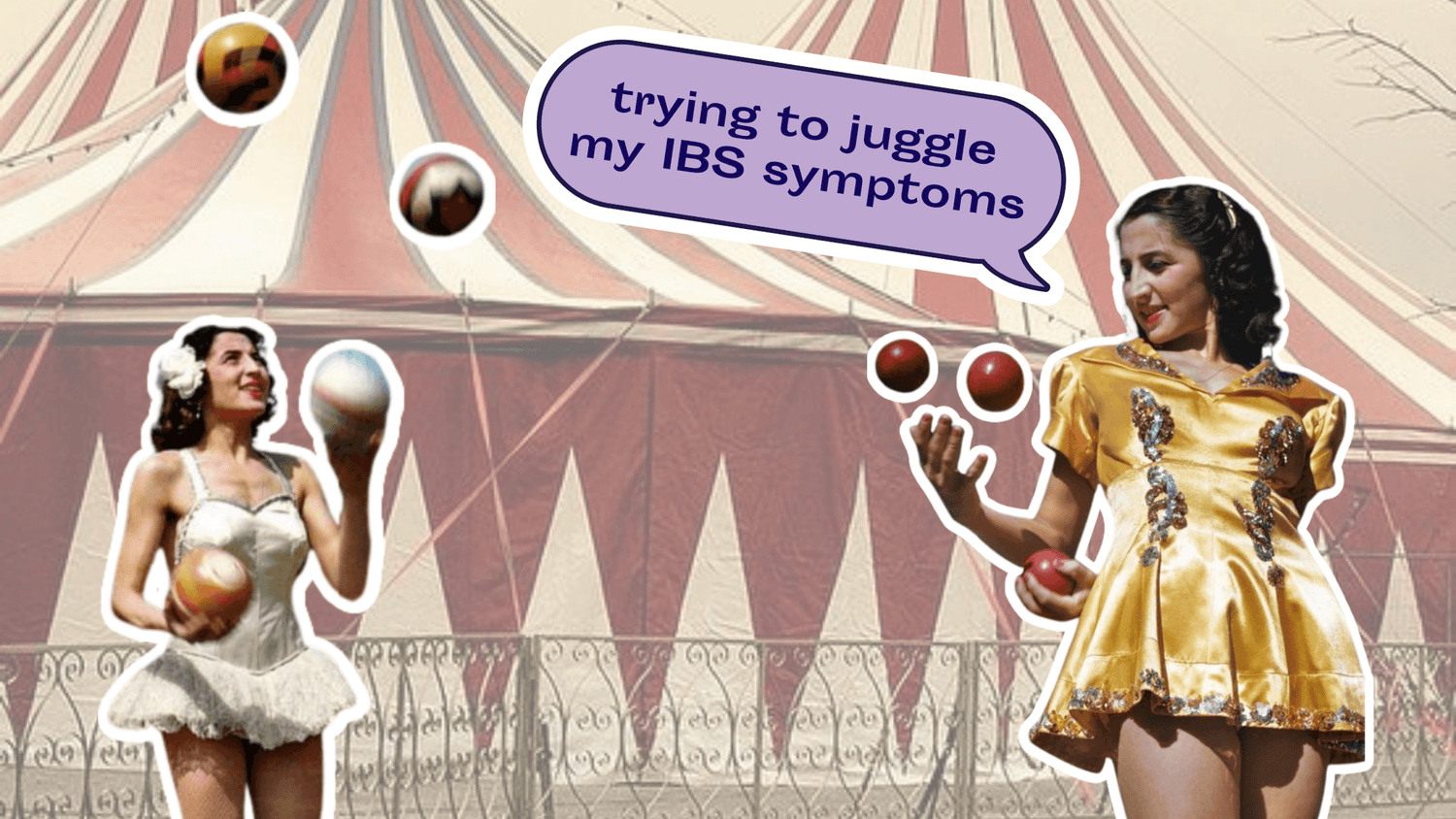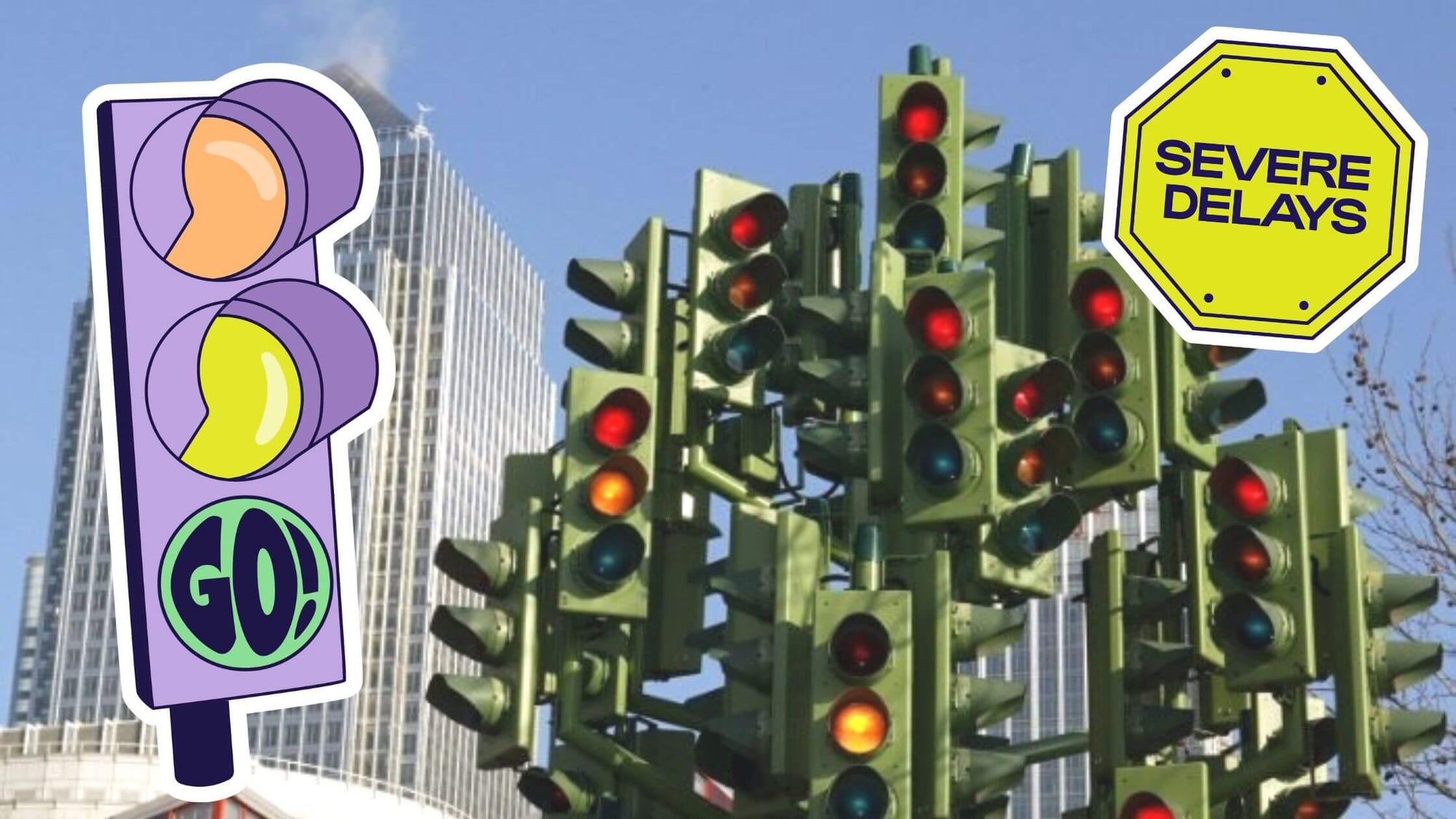Irritable bowel syndrome (IBS) is a gut health issue that impacts around 1 in every ten people across the globe, making it a relatively common health condition.
Depending on where you live, there might be more or less than 10% of the population dealing with IBS. For example, the United Kingdom, the United States, and New Zealand have a higher prevalence of IBS than elsewhere in the world.
The differences in the prevalence of IBS in different countries are thought to be down to different diagnostic criteria, access to healthcare, and general stigma around IBS.
In the UK, there isn’t necessarily much stigma around having IBS. In fact, many people will openly self-diagnose themselves with irritable bowel syndrome. Because it’s not seen as shameful to have IBS in the UK, it’s likely that more people go to the doctor to get a diagnosis, making the condition more prevalent in the UK compared to countries where IBS is more taboo.
Before we make this whole article about the epidemiology of irritable bowel syndrome, let’s get into the nitty-gritty of what IBS is, its causes, and its symptoms. At the end of this article, we’re going to give some top tips for improving your gut health and managing your IBS more effectively.
What is Irritable Bowel Syndrome (IBS)?
Irritable bowel syndrome, which most people call IBS for simplicity, is a functional gastrointestinal disorder.
Generally, IBS is split into three main types, including:
IBS-D (mostly diarrhoea)
IBS-C (mostly constipation)
IBS-M (a mixture of both diarrhoea and constipation)
The diagnostic criteria for IBS can be a little complicated, but to keep things nice and simple, you could get a diagnosis of irritable bowel syndrome if you:
- Have had abdominal pain or discomfort for at least six months
- Are you experiencing a change in bowel habits (such as you’re more constipated or you’re getting regular diarrhoea), which has been occurring for at least six months
- Are experiencing a lot of abdominal bloating and have been doing so for at least six months
When you head to your doctor complaining of all of the above, they will probably do a few different tests to rule out other causes of your symptoms. Inflammatory bowel disease (IBD), bowel cancer, and ovarian cancer can cause the above symptoms, so your doctor will rule these more serious issues out before diagnosing you with IBS.
Of course, we don’t want to scare you. Generally, if you have IBD or a form of cancer, you will get additional symptoms that are arguably more alarming than mild bloating and excess gas, such as rectal bleeding.
What Causes IBS?
We don’t actually know exactly what causes irritable bowel syndrome and its associated symptoms, although thankfully, more research is being done on this condition to figure out its root causes.
However, what we do know is that IBS is likely caused by a combination of several factors, including:
- Issues with gastrointestinal motility, which leads to changes in the way the muscles in the gut contract and push food through the digestive tract. This can lead to slower digestion, gas, bloating, and abdominal cramps.
- Changes in gut-brain communication, causing fewer signals to be shared between the central nervous system and enteric nervous system, slowing digestion down.
- Inflammation in the gut, affected the gut microbiota and causing digestive symptoms.
- Changes in the gut microbiome, causing fewer beneficial bacteria to reside in your gut and negatively impacting gut health.
- Hormonal imbalances, particularly thyroid hormones imbalances due to the thyroid gland being crucial for metabolism.
- Food sensitivities that inflame the gut, reduce gut microbiome diversity, and cause poor gut health.
- Stress and anxiety, both of which can slow digestion down, wreak havoc on your beneficial gut bacteria, and exacerbate digestive symptoms.
Although more research is needed to confirm the link between irritable bowel syndrome and genetics, it’s thought that you could be born with a predisposition to developing IBS if one of your parents has it.
What Are the Symptoms of IBS?
Irritable bowel syndrome can cause a range of different symptoms, and it affects people differently. You might find that your IBS symptoms get worse at certain times of the year, when you’re extra stressed, or when you eat certain foods.
The general symptoms of IBS include abdominal bloating, cramping, and pain. This is accompanied by a change in your bowel habits to either diarrhoea, constipation, or a bit of both. Due to eating certain foods becoming difficult when you have IBS, you might accidentally lose weight or develop slight nutrient deficiencies. Commonly, people with IBS are also diagnosed with iron deficiency anaemia due to reduced iron intake.
Note that irritable bowel syndrome doesn’t tend to cause any bleeding from your back passage or changes in vaginal discharge. If you’re experiencing either of these symptoms, please speak to your doctor, as there could be something more sinister going on.
Tips to Manage IBS Symptoms
Irritable bowel syndrome can be tough to deal with, especially when it starts to affect your everyday life. Many people find that they don’t want to leave the house and turn down invitations to social events because they’re worried about their bowels or don’t want to eat unusual foods in case it upsets their stomachs.
If this sounds like you, we sympathise! However, we also want to tell you that IBS doesn’t need to rule your life. It doesn’t need to be a demon on your shoulder that stops you from truly living your life.
With some important management steps, you can keep your IBS symptoms at bay and take back control of your life. You can attend all the social occasions you like and eat a wider range of foods without worrying about how your bowels are going to react.
Here are some top tips and natural remedies for managing irritable bowel syndrome.
1. Take a probiotic supplement
Bloating and excess gas are two of the most common symptoms of irritable bowel syndrome. They can be uncomfortable and even painful to deal with at times.
Controlling your bloating and gas with probiotics can provide some much-needed relief. Probiotics can also improve your gut health by boosting the levels of beneficial bacteria in your gut.
As their name suggests, probiotic supplements contain probiotic bacteria. These are beneficial species of bacteria, such as Bifidobacterium, Lactobacillus, and Enterococcus, all of which have been shown to promote better gut health, digestion, and nutrient production.
You have plenty of probiotic bacteria in your gut already, but taking a probiotic supplement supports your natural gut bacteria and is particularly helpful if you have IBS or a similar digestive health condition.
Finding a probiotic supplement to tackle bloating can be difficult. Here at Wild Dose, we’ve formulated the perfect probiotic supplement.
Our probiotic supplement, A Dose For Bloating, contains two billion probiotics, seven digestive enzymes, and seven plant extracts. Together, these ingredients support gut health and reduce the severity of IBS symptoms so you can live your life without worries.
2. Practice stress management techniques
You might have already noticed that your IBS flares up during stressful periods in your life. Stress plays a surprisingly huge role in IBS symptoms. Alongside probiotics and digestive enzymes, practising daily stress management techniques can, therefore, help in tackling your IBS symptoms.
Unfortunately, stress is a natural part of modern-day life. It’s not easy reducing the stress you have in your life, especially when you’ve got elderly parents of young children to look after.
While it’s almost impossible to completely eliminate all of the stress in your life, you can take steps to manage it more effectively. Cutting down your workload and taking at least one full day off work each week (ideally two full days, if possible!) can effectively reduce your stress.
Incorporate gentle exercise into your daily routine to promote a calmer mindset. Think yoga and outdoor walking. Try to avoid intense workouts that could add to your physical stress. Although high-intensity training can be a great way to improve cardiovascular health and muscular endurance, it's not always the best option if you're already highly stressed.
You can also practice a few minutes of deep breathing when you’re feeling particularly stressed. This might not sound like much, but controlling your breathing is a really effective way to slow down your heart rate and activate your parasympathetic nervous system. The parasympathetic nervous system is the ‘rest and digest’ branch of your autonomic nervous system that calms you down and makes you feel more relaxed.
3. Get plenty of ZZZs
Getting enough sleep is part of stress management but it’s not just important to controlling your stress levels. Adequate sleep is essential for your overall health and well-being. It’s during sleep that your body can repair any muscle damage, get rid of old cells, and regenerate tissues. Your brain is highly active in certain stages of sleep, where it lays down memories and processes the information you’ve taken in during the day.
Without proper sleep, you could feel fatigued, irritable, unable to concentrate, and achy when you’re awake. You might also find that your IBS symptoms are worse when you’re lacking sleep.
Aim to get at least seven or eight hours of undisturbed sleep a night, where your body and brain can work on repair and restoration. Of course, it’s not always easy getting a full night of sleep if you’re the parent of a young child or a needy pet.
To optimise your sleep, we recommend keeping your bedroom relatively cool, dark, and quiet. Use a fan or open your window an hour before your bedtime to lower the room temperature in your bedroom to the ideal range (15 to 20 degrees Celsius). Note that you’ll need to keep your bedroom slightly warmer (around 18-20 degrees Celsius) if you have a newborn sleeping in the room with you.
4. Make positive dietary changes
As someone with IBS, you need to pay particular attention to the foods you’re eating. Unlike those lucky people without irritable bowel syndrome, you might not be able to eat whatever you want, whenever you want.
Making certain modifications to your diet could make a huge difference in your IBS symptoms and reduce your discomfort and pain. Everybody with irritable bowel syndrome is different and the best diet for you will depend on how your condition manifests, which symptoms you experience, and which foods trigger your IBS to worsen.
However, it’s generally recommended that those with IBS should adopt a low-FODMAP diet, as most people with this condition react badly to FODMAP foods.
FODMAP foods include those that contain fermentable carbohydrates, such as wheat, rye, onions, garlic, apples, pears, watermelon, mangoes, and dairy products. These foods can sit in your gut for a while, allowing your gut bacteria to ferment them and produce lots of gas. This extra gas production leads to bloating, burping, flatulence, and abdominal pain.
It’s also a good idea to increase your fibre intake when you’re trying to manage IBS symptoms. Fibre fuels the beneficial probiotic bacteria in your gut, enabling them to break down ingested food more easily. When your food gets metabolised and absorbed quickly, you’re less likely to feel bloated and full of gas.
Final Words
Dealing with irritable bowel syndrome and its ongoing symptoms can be difficult but with the right management steps, you can minimise its impact on your quality of life. IBS is a common digestive condition, and you’re not alone!
Try the strategies that we’ve spoken about in this article to see if any of them (or a combination of them) work well for you and control your IBS symptoms nicely. You might need to try a few different strategies at once and do some trial and error to see which ones you find the most helpful in improving your gut health.
If you have any questions about our probiotic and digestive enzyme supplement, A Dose For Bloating, get in touch with our team today so we can answer them and give you the information you need.








